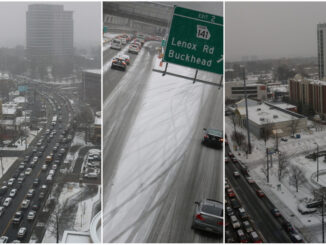ATLANTA — More motorists on the road means an increased demand for parking. While that is good news for parking operators, the uptick in vehicles and drivers is causing a parking crunch in many places.
Forward-looking organizations and municipalities make parking part of a larger approach to how people move through an area, whether it be a campus or community.
“The urban landscape is changing. Single occupancy vehicles won’t work on their own,” said Mitch Skyer, president of Atlanta-based Passio Technologies. “Parking operations are increasingly experiencing higher demand with fewer resources. Parking outside the building is not an option in many cases, and the efficient movement of people from their single occupancy vehicle to their destination is the primary goal.
“The opportunity is to make parking better connect with multimodal transportation options,” Skyer added. “The world changes when the transportation comes into an area.”
Communities nationwide are moving to higher-density developments that promote walkability and alternate forms of transportation. Some studies show 35 percent of people will walk a mile to reach their work, while 46 percent will walk a mile to reach their church or school.
While parking will not disappear, it should be more seamlessly integrated into a larger mobility plan — whether park and ride or periphery parking lots.
“There are physical limitations to parking,” Skyer said. “Parking is in a fixed location, and the cost of parking can be exorbitant. That requires flexibility, and flexibility comes with transit. Transit can move people anywhere there’s a road.”
A standard lane of traffic can handle about 2,000 people per hour. With buses, that same lane can handle more than four times as many people.
Once parked, organizations should use technology to make the transit experience more enjoyable for riders. That includes real-time bus tracking, Wi-Fi for passengers and passenger feedback via text.
Skyer partnered with Michael Klein, founder & CEO of Klein & Associates, to present “Expanding Your Portfolio: Understanding Fleet and Shuttle Management” during this year’s National Parking Association’s 65th Annual Convention & Expo in Atlanta.



